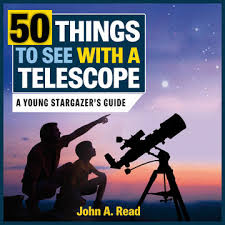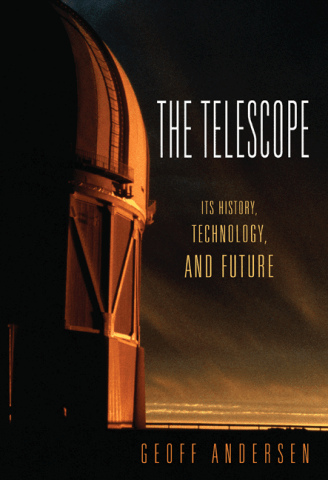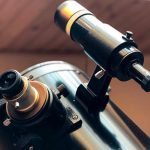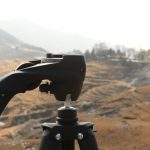Reflector vs. Refractor Telescopes – What is the Difference?
If you’re new to telescopes and you’re on the market for your first one, you have a lot of big decisions to make. One of the biggest decisions is whether to get a reflector or a refractor telescope.
The reflector vs refractor telescope debate is a very important one. Many enthusiasts have strong feelings about one over the other.
There’s no wrong telescope to purchase – they both come with their own pros and cons. Which one will work best for you is a matter of personal choice.

What is a Reflector Telescope?
Reflector telescopes have a few small mirrors inside. The bare minimum is two, but some of them have more. The eyepiece is on the top of a reflector telescope, so you need to look down inside of it, rather than straight through it.
A reflector telescope uses mirrors to transmit the image through the front of the telescope to the eyepiece.
What is a Refractor Telescope?
Refractor telescopes are a straight-through telescope. They’re shaped like a regular tube. The eyepiece is located directly on the other side of the lens, which magnifies the image and sends it down.
Refractor telescopes are the most common type of telescope, and they’re probably the image that first pops into your mind when you hear the word “telescope.”
The Pros and Cons of Reflector Telescopes
Reflector telescopes are very common. You can find them anywhere, and there are several great models at a really affordable price. Reflectors are mass produced nowadays, so they’re accessible to everyone.
Most aspects of a reflector are great, but there are some cons that may influence your opinion on reflecting vs refracting telescopes.
Pros
- Some telescopes are subject to something called chromatic distortion. This is when the image gets bounced around inside of the telescope and the colors that come through to the eyepiece are washed out, or outright wrong. This doesn’t happen with reflectors, since the image is passed by mirrors.
- Reflectors are powered by mirrors, and mirrors are inexpensive to manufacture. These savings get passed down to you. Reflectors are a lot less expensive to purchase.
Cons
- Reflectors often need to be collimated. This sounds like a complicated and fancy word, but it has a simple meaning. Collimating a telescope is simply adjusting the mirrors inside of it so that the image projects correctly. You can collimate it yourself at home with the help of a special laser used to help align the mirror.
- You need to stand to use a reflector. If you’re comfortable standing for a long time, this might not be a problem. Where this gets difficult is with children, who may need a stepping stool or some extra help to get to the eyepiece of a longer reflector telescope.
The Pros and Cons of Refractor Telescopes
Refractor telescopes are a little more like a professional tool. Whenever you go somewhere designed for people to look at the stars, such as an observatory deck, these places are often equipped with refractor telescopes. There are a lot of reasons why refractors are so popular, but there are also a few disadvantages to choosing a refractor.
Pros
- Refractors are one of the original designs to telescopes, and we still use them because that design has held up so well for so long. This is a tried and true variety.
- Refractor telescopes offer the viewer a superior contrast. The sky itself looks velvety black, and the objects you’re viewing will show brightly, popping off the background.
- Refractor telescopes don’t need to be collimated. Collimation is a necessary process for telescopes with multiple mirrors that will sometimes shift and need to be realigned. Since a refractor doesn’t use these kinds of mirrors, the maintenance and upkeep are much simpler.
- Short refractor telescopes are easy to use from a seated position. Putting them on a windowsill or the rails of your porch is very convenient. They’re comfortable to use for extended periods of time.
Cons
- Longer tube refractor telescopes require a much taller tripod to be effective. They’re a little more difficult to set up, and large ones aren’t very portable.
- Large aperture refractor telescopes tend to be a lot more expensive than other kinds of telescopes.
- Refractor telescopes are subject to something called chromatic distortion. This is an issue that occurs when light bends coming through the front of the telescope, which causes the colors to appear incorrectly. Most often times, the image is washed out.
Who Should Use a Reflector?

Reflectors give you great image quality with true colors, and if that’s what’s most important to you, you’ll appreciate a reflector.
They’re great for viewing up close objects like the moon, and you can even pick up some nebulas. It’s a great range of vision, even if they do sometimes require proper collimation.
Who Should Use a Refractor?
Refractors can view planets, but their real specialty lies in their ability to showcase things that are very far away.
Because refractors do such a good job at picking up light and creating contrast, you can see very distant stars with a refractor. A large diameter refractor can pick up things you would never know existed based on observations with the naked eye alone.
Reflector vs Refractor Telescope for a Beginner

The reflector vs refractor debate is most important for beginners who are looking to purchase their first telescope. They’re both great telescopes, but refractors are easiest for beginners who don’t want to tinker with their telescopes.
They’re a little more expensive, but they save you maintenance. Reflectors will show you true vivid colors, but you need to be prepared to collimate them. If this doesn’t bother you, choose a reflector.
Final Verdict
Reflectors are going to give you the most true to life representation of what celestial objects look like. If you want to explore our solar system, you definitely want a reflector telescope.
They win out for viewing up close objects and creating stunning images. If you have to choose between a reflector vs refractor telescope, a reflector is almost always going to satisfy your needs.





















